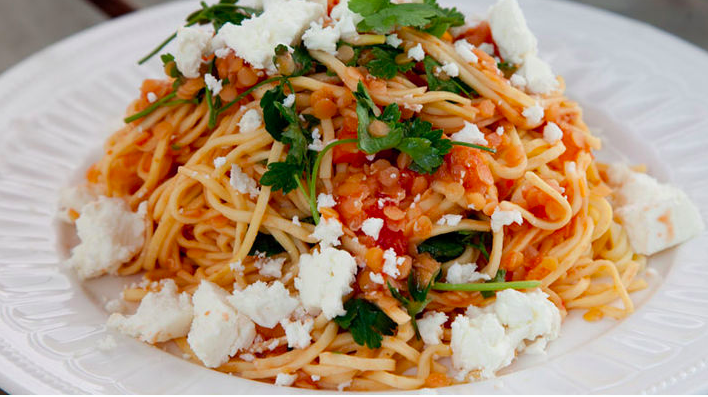What Is A Plant-Based Diet?
What Is A Plant-Based Diet?
What Is A Plant Based Diet…
A plant-based diet is a way of eating that celebrates plant foods and focuses on consuming foods in their most natural form.
While it also encourage to cuts out less healthy items like process food, added sugars and refined grains products. It is sometimes also called a flexitarian diet.
Regardless of the type of whole-foods, plant-based diet you choose, adopting this way of eating should help to boost your health.
There is no clear definition of a what constitutes a whole-foods, plant-based diet. It is not necessarily a set diet but more of a lifestyle.
This is because plant-based diets can vary greatly depending on the extent to which a person includes animal products in their diet.
The basic principles of a whole-foods, plant-based diet are as follows:
- Putting the emphasis on whole food and minimising processed foods.
- Limiting or avoiding animal products.
- Putting a large focus on plants including vegetables, fruits, whole grains, legumes, seeds and nuts, which should make up the majority of what you eat.
- Trying to exclude refined foods, like added sugars, white flour and processed oils.
- Paying attention to food quality, and understanding the importance of eating locally sourced, organic food whenever possible.
For these reasons, this diet is often confused with vegan or vegetarian diets. Yet although similar in some ways, these diets are not the same.
People who follow vegan diets abstain totally from consuming any animal products, including dairy, meat, seafood, eggs and honey. Vegetarians exclude all meats from their diets, but still include in variance; eggs, seafood or dairy.
Plant based whole foods diet on the other hand, is more flexible.
The diet emphasizes on plant-based foods while minimizing animal products and processed items, so animal products aren’t off limits
When switching to a plant-based diet, meals should centre around plant-based foods.
If animal foods are eaten, they should be eaten in smaller quantities, with attention paid to the quality of the item.
Foods like dairy, eggs, meat and seafood should be used more as a complement to a plant-based meal, not as the main focal point.
A Whole-Foods, Plant-Based Shopping List
- Fruits: Berries, citrus fruits, pears, peaches, pineapple, apples, bananas, etc.
- Vegetables: Kale, spinach, tomatoes, broccoli, cauliflower, carrots, asparagus, peppers, etc.
- Starchy vegetables: Potatoes, sweet potatoes, butternut squash, etc.
- Whole grains: Brown rice, rolled oats, quinoa, brown rice pasta, barley, etc.
- Plant base fats: Avocados, olive oil, coconut oil, unsweetened coconut, etc.
- Legumes: Peas, chickpeas, lentils, peanuts, black beans, etc.
- Seeds, nuts and nut butters: Almonds, cashews, macadamia nuts, pumpkin seeds, sunflower seeds, natural peanut butter, tahini, etc.
- Unsweetened plant-based milks: Coconut milk, almond milk, cashew milk, etc.
- Spices, herbs and seasonings: Basil, rosemary, turmeric, curry, black pepper, salt, etc.
- Condiments: Salsa, mustard, nutritional yeast, soy sauce, vinegar, lemon juice, etc.
- Plant-based protein: Tofu, plant-based protein sources or powders with no added sugar or artificial ingredients.
- Beverages: Coffee, tea, sparkling water, etc.
- If supplementing your plant-based diet with animal products, choose quality products from your local supermarket or, even better, buy them from local farms or farmers markets
Foods to Minimise ;
While healthy animal foods can be included in a whole food plant based diet, the following products should be minimized in all plant-based diets.
- All kind of meats
- Eggs
- Dairy
- Seafood
Foods to Avoid
- Fast food: chips, cheeseburgers, hot dogs, chicken nuggets, etc.
- Added sugars and sweets: Table sugar, juice, pastries, cookies, candy, sweet tea, sugary cereals, etc.
- Refined grains: White rice, white pasta, white bread, bagels, etc.
- Packaged and convenience foods: crisps, crackers, cereal bars, frozen dinners, etc.
- Processed vegan-friendly foods: Plant-based meats like Tofurkey, vegan butters, etc.
- Artificial sweeteners: Splenda,
- Processed animal products: Bacon, lunch meats, sausages,
3 Ways to Get Started on a Flexitarian Diet
- Make small swaps. Mix mushrooms into minced beef (it’s called “the blend” or try cashews or cooked lentils.
- Make meat a topping. Cooking steak? Slice it thinly and serve it over veggies. Take rotisserie chicken and toss it into a slaw or salad. Make less animal-protein-centric dishes.
- Stock up on pulses. These inexpensive pantry staples that include beans, lentils, chickpeas, and split peas, are nutrient-dense and are super versatile.
Recipes

Spaghetti with Lentils sauce
Ingredients
- 2 tbsp. olive oil
- 1 onion finely chopped
- 1 carrot finely chopped
- 2 clove garlic crushed
- 2 tbsp tomato puree
- 800 g or 2 tins chopped tomatoes
- 100 ml white wine
- 200 g red lentils
- 300 g wholemeal spaghetti
- 100 g feta crumbled (optional)
- 2 tbsp fresh parsley
- Salt and pepper
Instructions
- Heat the olive oil in a saucepan over medium heat. Add the onion, carrot and cook over low heat for 2 -3 minutes until softened. Add the garlic, tomato paste, tomatoes and white wine. Bring to the boil and add the lentils and season with salt and black pepper. Reduce the heat and simmer for 15 minutes, until lentils soften.
- Meanwhile, cook the spaghetti in boiling, salted water according to packet instructions.
- Drain the spaghetti and toss with the lentil sauce.
- Divide between serving bowls and sprinkle with feta and fresh parsley.
Single 7 Day Course
7 daily lessons
2 live cook-alongs on Tuesdays and Thursdays
Access to this course for 1 year
All recipes relating to the course




